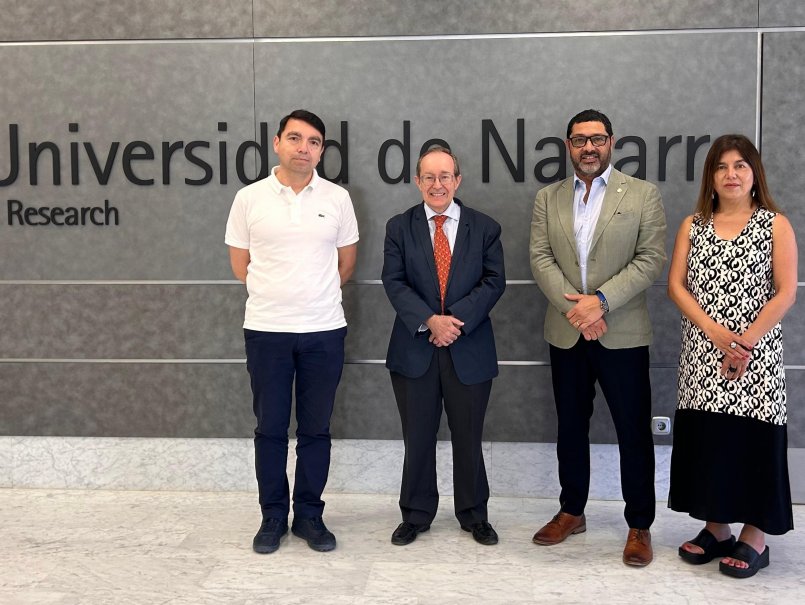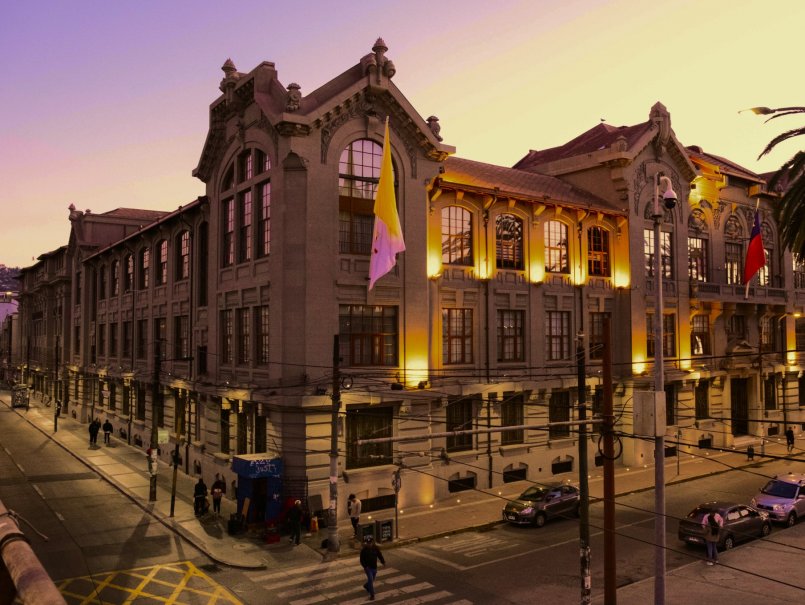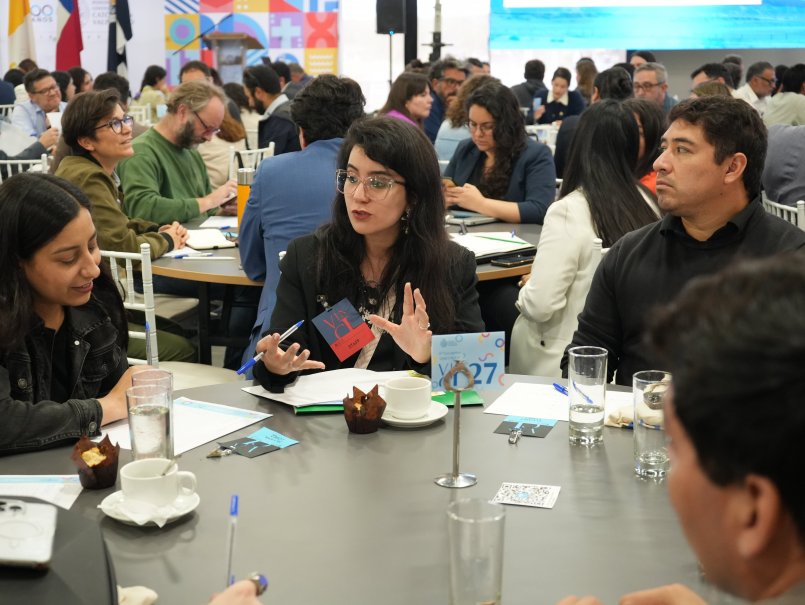
A strategic visit to various Spanish universities and their biomedicine research centers, was made by a group of PUCV scholars, in the context of the I+D+i Frontier University Fund (FIUF), which considers the creation of a research center in biomedicine, biotechnology and wellbeing at the university.
The delegation learnt about the work carried out by the Applied Medical Research Center (CIMA) of the Universidad de Navarra, whose priority fields relate to neuroscience, cancer, gene therapy and cardiology. They also visited the San Pau Hospital, the School of Medicine of the Universidad Autónoma de Barcelona and the San Pau Hospital Research Center. These entities focus their research on matters of medical genomics, biomarkers, hospital circuits innovation and women’s health. Visitors we also able to experience the Barcelona Scientific Park, associated to the Universidad de Barcelona. This institution is formed by Spanish and international research centers, I+D groups, service platforms and established companies.
Luis Mercado, Vicerector of Research, Creation and Innovation (VINCI) of the Pontificia
Universidad Católica de Valparaíso and director of the FIUF project, explained that the Spanish research centers visited are relatively young entities that emerged in the early 2000s, which is auspicious for the PUCV’s plan for creating its own center. In this sense, he highlighted that “in Spain, in a period of 20-25 years, prestigious and internationally relevant organizations have been formed, which is very interesting and shows us that, in the same timeframe, we could have a consolidated center”.
Managament, proximity and startups
Management, physical proximity and startup development are three elements that have contributed to consolidate cutting-edge research and Innovation associated to universities in the Spanish case, and the same could be used as reference to consider in the center thought by the PUCV.
“We saw the importance of having research managers, as in the Universidad de Navarra, where there is a team that works individually with researchers during the whole process. We also confirmed the fundamental importance of the connection and physical proximity between clinical centers and hospitals with the research center to facilitate an effective encounter between scientists and clinical area professionals, as well as the development of startups associated to different lines of investigation and innovation”, Mercado stated.
He added that “through the FIUF project we are committing to the generation of a center at the University, which also involves innovation and entrepreneur strategies in the biomedical field, with an emphasis on startups and the creation of companies with a science-technology basis”.
From the financial management aspect, Alex Paz, Vicerector of Administration and Finances at the PUCV, highlighted the experience of learning how these international centers have implemented institutional policies to encourage research and how a synergic ecosystem was organized, providing thoroughness to the system in Spain, particularly in Cataluña, from a funding standpoint.
“This international experience should take us to a reflect on the design of the research support mechanisms that, as they become more complex, require greater incentives. Our university, through the Centenario projects, saw the possibility of generating a basal funding, but we need to think in which ways do current instruments and support mechanisms adjust to research, and how we generate incentives to strengthen innovation and technological transference”, Paz stated.
PUCV biomedicine center
The research center for biomedicine, biotechnology and wellbeing of the PUCV considers the participation of more than 35 researchers led by the Biochemistry Engineering School scholar, Claudia Altamirano.
Focused on the study and development of Biotechnology and biomedicine that aims to improve people’s health and wellbeing, the center will place special emphasis on aging and non-transmittable chronic diseases such as obesity, hypertension, cardiovascular problems, among others, in addition to advance cellular therapy and biopharmaceutical based therapy.
“The visit to centers of I+D+i and technological transference in the biomedical field in Spain reinforces the importance of an interdisciplinary I+D+i, integrated with academic training and clinical care. From the CIMA at the Universidad de Navarra, to the Sant Pau Hospital-Universidad Autónoma de Barcelona complex, to the Scientific Park in Barcelona linked to the Universidad de Barcelona, it can be observed how science and innovation converge around personalized medicine, the patient and the use of cutting-edge equipment. Regarding the latter, collaboration between universities, hospitals and businesses stands out, since it generates a significant social impact from a transformational academic perspective”, Claudia Altamirano stated.
She added that “the experiences confirm that joining the I+D+i with a people-centered focus is key to move forward towards more innovative and human health systems, in agreement with the Health Wellbeing strategic core”.
The university will soon complete the first stage of the FIUF project, related to the gathering of information, with the plan of preparing the proposal for the next stage and continue to move forward towards the consolidation of this cutting-edge biomedical research center.
By Erika Schubert
Strategic Communications Department



